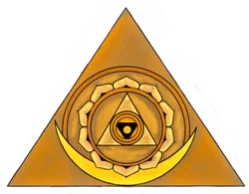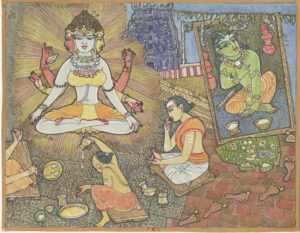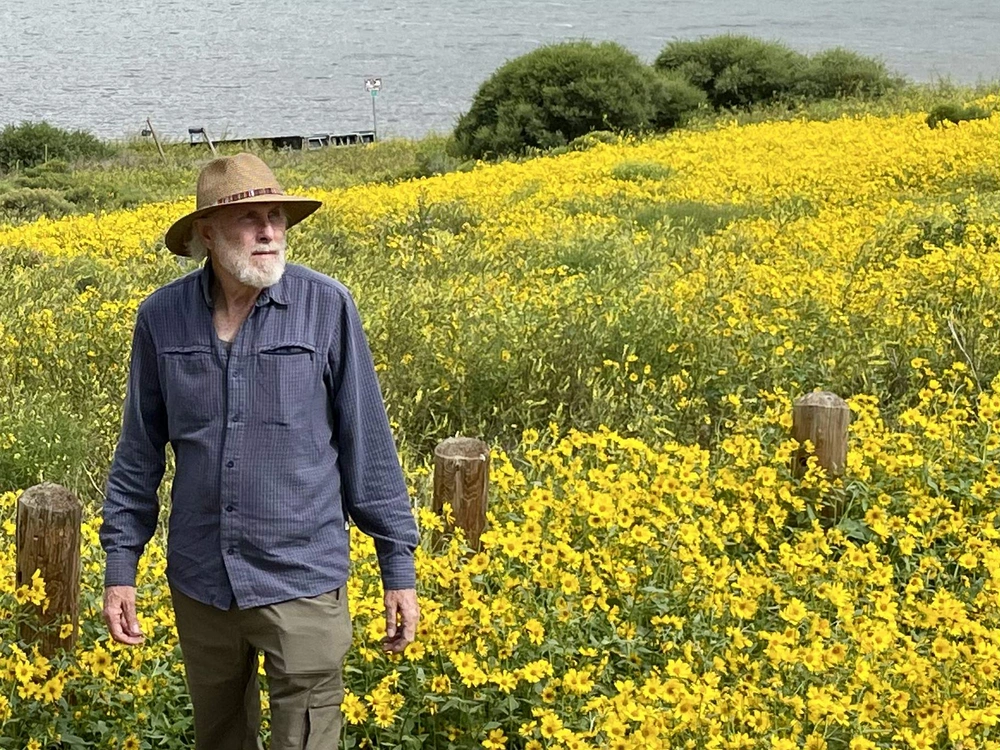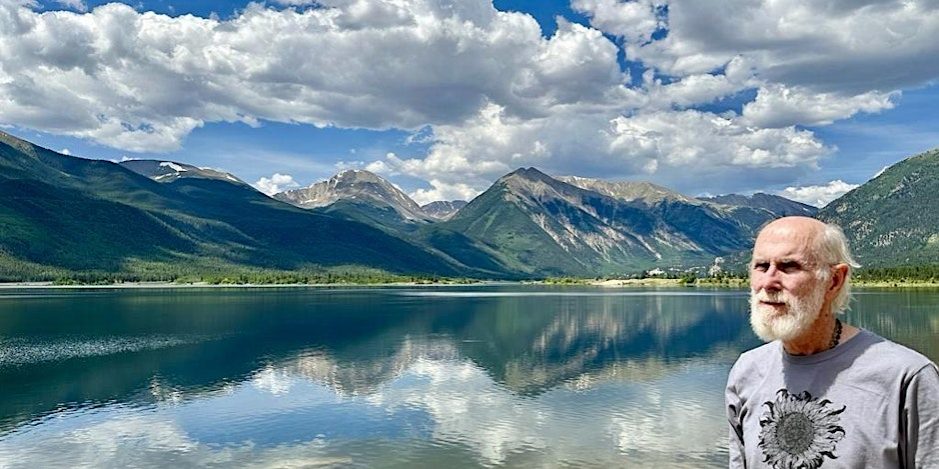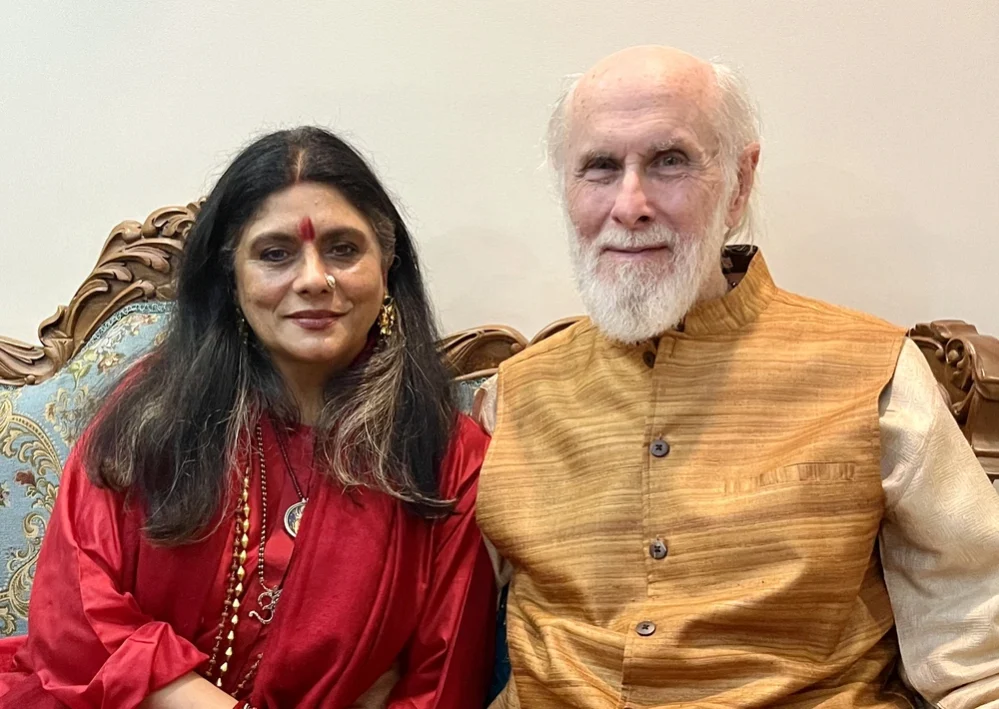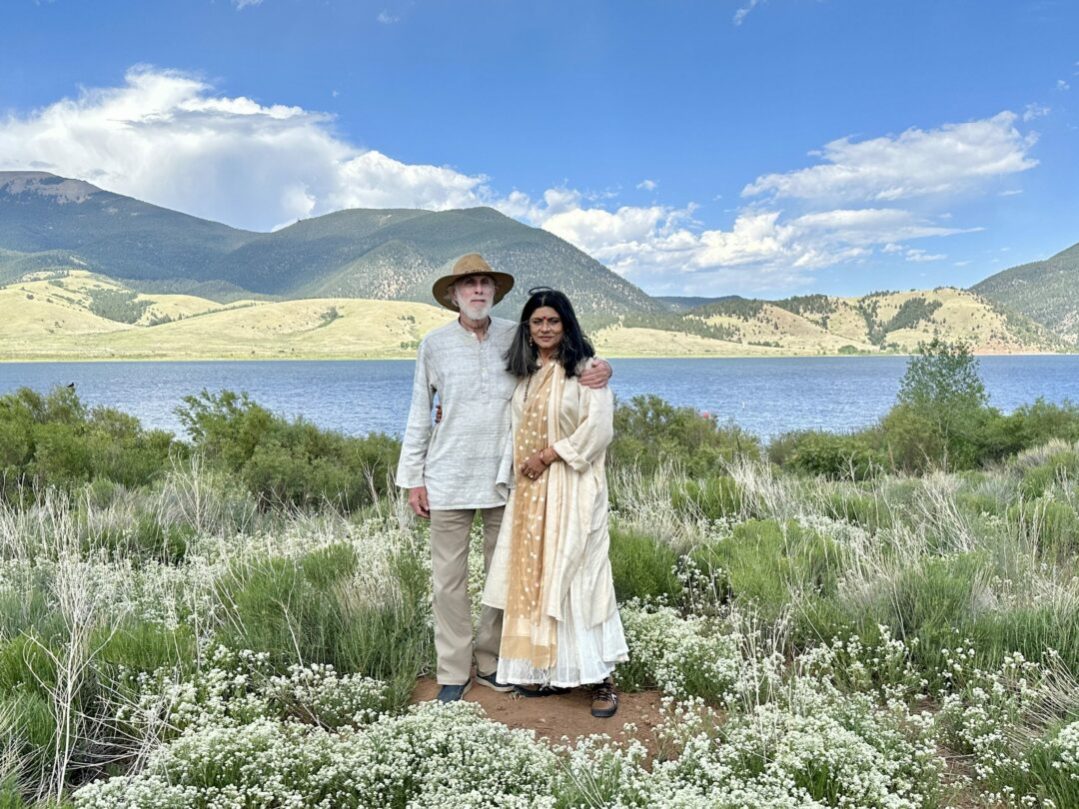Mahatma Gandhi remains the most well known and respected figure of modern India and its Independence Movement. His spiritual approach to political activism has influenced the entire world, including the civil rights movement in the United States through Dr. Martin Luther King. Yet while many people know about Gandhi, few understand what he represented or the traditions he reflected.
Mahatma Gandhi was not a political leader and never held any political post. He was primarily a spiritual and religious teacher. He shaved his head and wore the white loincloth of a sadhu or Hindu holy man. He was called a Mahatma or great soul, a term for great gurus and spiritual leaders. His favorite book was the Bhagavad Gita of Sri Krishna, and his favorite mantra was Om Ram. While he had previously been a lawyer up to his inner transformation in 1921, he renounced that for his spiritual work.
Gandhiji regarded his social and political work as a form of Karma Yoga, service to humanity and to the Divine. He organized prayer meetings where mantras were chanted and religious leaders of various types gathered together. He took no money for himself and commonly mingled with the masses. He honored strict dharmic principles of right living, such as we find from Vedic texts to the principles of traditional Yoga.
For the people of India, Gandhi was not a new figure with unusual practices as he is for westerners, he was the representative of a venerable ancient tradition of spiritual leaders, many who addressed the social and political issues of their times from the standpoint of Karma Yoga. The masses of India did not see Gandhi as a unique individual but as the affirmation of their own older traditions that they knew quite well. They projected the respect for the traditional sadhu upon Gandhi, even if they knew little about him personally.
Gandhi, Dharma and Karma Yoga
Mahatma Gandhi promoted the dharmic values that have permeated India’s civilization Hindu, Buddhist and Jain. Most known in this regard is the principle of ahimsa or non-violence that he gave primary emphasis to, even putting his own life at risk. In addition, he emphasized satya or truth and said that truth was the most important principle, not any mere belief. He called his movement Satyagraha or holding to truth. He strived to live a life of simplicity, austerity and self-control. This is much like the five yamas of Yoga, ahmisa, satya, brahmacharya (self-control), asteya (non-stealing) and aparigraha (non-coveting).
Gandhiji similarly emphasized the prime principles behind the five niyamas of Yoga practice; tapas as austerity including fasting which he did to challenge the British, svadhyaya as self-study, Ishvara-pranidhana as surrender to the Divine, saucha as purity and santosha as contentment.
Yet Gandhi was not unique in his spiritual orientation for India’s Independence Movement. Lokamanya Tilak, the main Congress leader before him, emphasized the Bhagavad Gita and made Ganesh Puja into a national movement, as well as honoring the Vedas. Sri Aurobindo, who would have probably been the leader the independence movement if he had not first retired into his special Yoga practice, similarly emphasized Vedas, Mahabharata, Ramayana and India’s vast Yoga tradition.
The Indian Independence Movement found great inspiration in figure of Swami Vivekananda, who brought Yoga and Vedanta to the modern world, and his guru Paramahansa Ramakrishna. Many sadhus and Swamis aided in the Independence movement from various traditions including the Arya Samaj that had as its motto the return to the Vedas.
Gandhiji was not part of western politics left or right of his times, and would not fit into their new forms today. He was a fierce critic of British colonialism, but also of communism, which he rejected as a great danger for India. He was against capitalistic greed as well. He severely criticized the Christian missionaries who tried to convert him.
In honoring Mahatma Gandhi we must recognize the tradition he reflected and was the basis for the respect he gained in India. We should look to the values he emulated, not just to his personal achievements. Today we also need to follow dharmic values and practice Karma Yoga to achieve a better and more peaceful world.
We need a deeper understanding of Yoga, Vedanta and Veda, for which its modern growing popularity since Vivekananda is just an initial entry into a vast temple of Self-realization and universal Consciousness. Along with Gandhi all the great leaders of India’s Independence deserve their respect, including those who found it necessary to use the forms of arms against the cruel British rule that sought to dismantle India’s civilization and humiliate its people. Yet Gandhi’s ability to gain a worldwide attention for India must be honored as well for years to come.
A Personal Note
I came to know Gandhi during my participation in the anti-war movement and civil rights movement in the United States in my youth from 1966-1973. He was the first figure from India I came to know of and find an affinity with, whose influence led me to India’s great gurus including Yogananda, Aurobindo, Anandamayi Ma, Vivekananda and Rama Tirtha, and eventually to Yogic and Vedic teachings overall. While I cannot claim to simply be a Gandhian but more under the influence of Sri Aurobindo, I must honor his role in my life and his influence in my inner development.
Vamadeva Shastri
